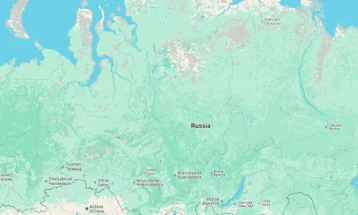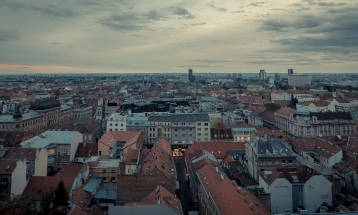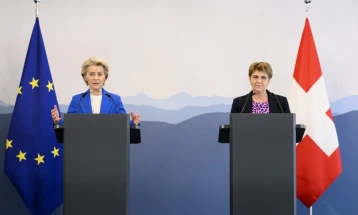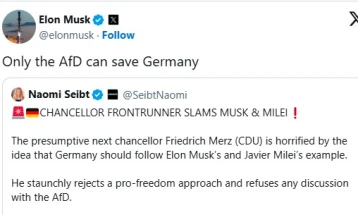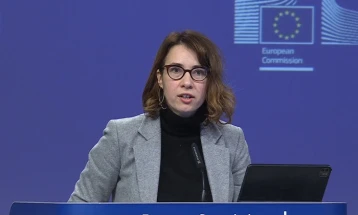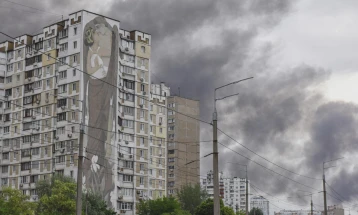Austria's far right claim first election win in post-war history
- The far-right Freedom Party of Austria (FPÖ) has won Austria's parliamentary election with 29.2% of the vote, according to preliminary official results announced by the Interior Ministry.
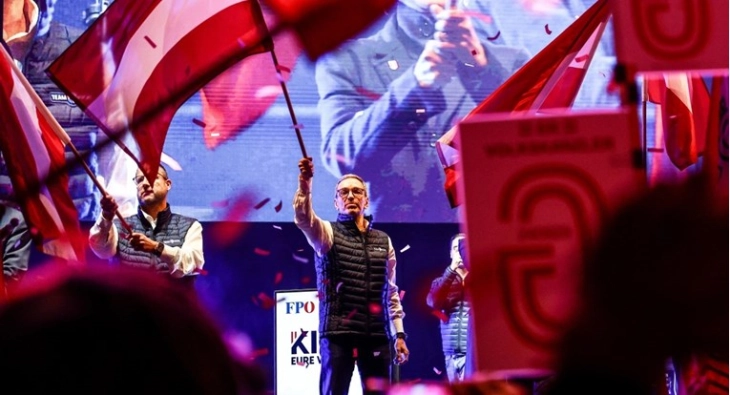
Vienna, 30 September 2024 (dpa/MIA) — The far-right Freedom Party of Austria (FPÖ) has won Austria's parliamentary election with 29.2% of the vote, according to preliminary official results announced by the Interior Ministry.
It is the first time since the end of World War II that a far-right party has won a parliamentary election in Austria.
The conservative Austrian People's Party (ÖVP) of the outgoing coalition government was pushed into second place with 26.5% of the vote.
The ÖVP lost 11% compared to the 2019 election, while the FPÖ gained 13 percentage points after being booted from government in a 2019 corruption scandal.
The Social Democrats (SPÖ) secured the third highest number of votes with 21.1% (down 0.1 points), according to the preliminary results.
The liberal NEOS party received 9% of the vote, an increase of 0.9%. The Greens, who were previously in government with the conservatives, received only 8% of the vote, a decrease of 5.9%.
The preliminary result includes the majority of postal votes. The remaining absentee ballots are expected to be counted by Thursday.
FPÖ leader Herbert Kickl saw the election outcome as one that will usher in a change for Austria. "Voters put their foot down today," Kickl said, reading the projected win for his party as a "clear statement that things cannot go on like this in this country."
Far-right chancellor unlikely
However no other Austrian party is currently willing to form a government with the current FPÖ. The conservative party of incumbent Austrian Chancellor Karl Nehammer quickly renewed its pledge not to work with the far-right under Kickl.
"We are extending a hand in all directions," said Kickl, whose EU-sceptical and pro-Russian party seeks to establish an "Austrian fortress" of anti-migrant policy.
However Austrian President Alexander Van der Bellen does not necessarily have to give the task of forming a government to the party with the most votes, and the former Green Party leader has repeatedly criticized the FPÖ's political positions on the EU, migration and the war in Ukraine.
It is therefore likely that current chancellor Nehammer will be given the task of forging a governing coalition. The alternative to the FPÖ is the SPÖ. However, an alliance is considered difficult because SPÖ leader Andreas Babler has moved the Social Democrats far to the left with demands such as a 32-hour working week.
Whether Babler will be able to stay in office in view of the result is one of the questions that will now arise.
Far-right buoyed by inflation and unemployment
The election result is a turning point for Austria in several respects. Never before have the ÖVP and the SPÖ both been so weak at the same time. The Social Democrats came only third for the first time, while the ÖVP led by Nehammer recorded one of its worst election results.
According to election researchers, the FPÖ benefited enormously from the great dissatisfaction among the population. Austria is in the midst of an economic slump and unemployment is rising, while the country has endured particularly high inflation in recent years. The FPÖ's strict anti-migration stance is also considered popular.
Sunday marks the Austrian far right's biggest victory since the so-called Ibiza affair, which triggered investigations into ÖVP politicians for allegedly falsifying polls and questionable media collaborations.
In a secret video recording taken in Ibiza in 2019, the then FPÖ leader promised a supposed oligarch's niece future state contracts in exchange for support.
A 'homogenous' Austria
Immigration had been a central topic of the campaign. The far right intends to crack down on immigration with full force if it takes over government and accelerate deportations.
Under Kickl's leadership, the FPÖ has given up its former distance to the so-called Identitarians, a white supremacist movement categorized as right-wing extremists.
In its election manifesto, the FPÖ campaigned for an extremely restrictive migration policy under the slogan "Fortress Austria - Fortress Freedom".
The party calls for migrants to be returned to their countries of origin and wants more "homogeneity" in society - as an alternative to the diversity often sought internationally.
The FPÖ's significant gains are in line with the right-wing trend across Europe, notably with Geert Wilders and his radical right-wing Party for Freedom in the Netherlands, the Italian right-wing party Fratelli d'Italia (Brothers of Italy) led by Giorgia Meloni and the right-wing nationalist Rassemblement National with Marine Le Pen in France.
The far-right Alternative for Germany meanwhile achieved great success in German state elections in Saxony, Thuringia and Brandenburg, charting the far-right's first state election win since the fall of Nazi Germany.
